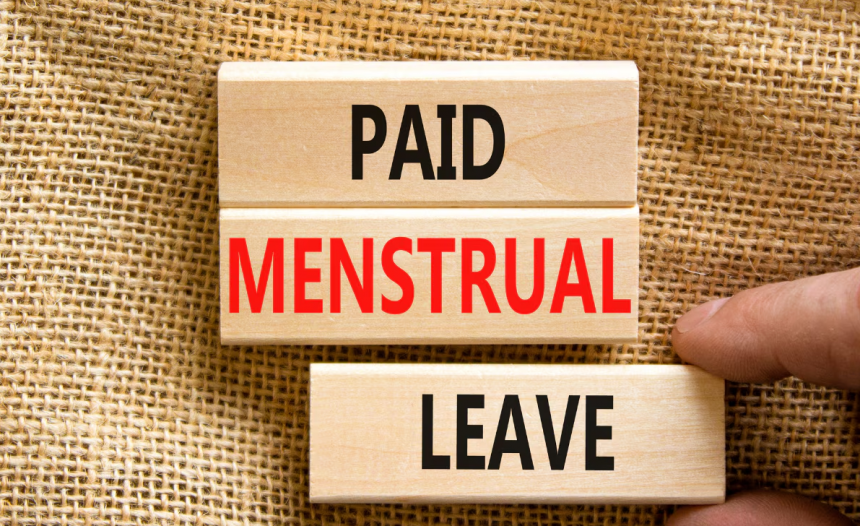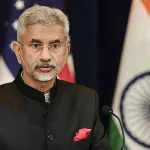“Agreed, with hard work and persistent effort it is indeed possible for women to do the same things and gender doesn’t necessarily deter us from setting professional goals. But periods sometimes do”. Indira Nooyi – Chief Executive Officer of Pepsico. The menstrual cycle is a natural occurrence essential for women’s well-being, but it often brings intense discomfort. Menstrual symptoms include illness, fever, fatigue, lack of concentration. Some women experience severe conditions that put their lives at risk. Every working woman has to cope with menstrual pain, which can be a significant obstacle, even in very well educated environments.
While some women experience a normal and painless menstrual process, others face crippling conditions like Polycystic Ovarian Disorder or Polycystic Ovarian Syndrome , and ovarian cysts. Women need rest during their menstrual period, but there are no established policies addressing this need. Women are now employed in various sectors, showcasing their competence and often outperforming male counterparts. However, the challenges they face during their periods continue to hinder their effectiveness. The extreme pain negatively affects their mental and physical health. Studies have shown that menstruation can increase cardiovascular strain, impacting women’s performance. Energy levels may also decrease during this time, although it varies among individuals.
There is a growing demand in India to amend labor laws to provide better working conditions for female employees. The movement for menstrual leave has gained momentum nationwide, with a strong push for granting paid leave during menstruation. Additionally, there have been calls for reasonable breaks and resting facilities for women at workplaces in India.
Research published by University College London suggests that period pain can be as severe as having a heart attack, highlighting the need to acknowledge and address the biological complexities and intense pain experienced by women. Therefore, women should have the right to take leave during menstruation. Additionally, many women face difficulties, particularly during the first and second days of their menstrual cycle.
Considering the perspectives of female workers and the interests of organizations, menstrual leave is considered desirable. Article 42 of the Indian Constitution’s Directive Principles of State Policy mandates the state to ensure fair and humane working conditions and provide maternity relief. Although Article 15 prohibits discrimination solely on the basis of sex, Clause 3 of the article empowers the state to pass laws for the special provisions for women. Therefore, the enactment of a law by Parliament recognizing the right to menstrual leave would not only be constitutional but also fulfill the state’s obligation under the Constitution.
Where does India stand?
In recent years, there has been a growing debate about menstrual leave policies in India. Some companies have taken the initiative to introduce such policies, recognizing the challenges that menstruation can present for women in the workplace. In 2020, Zomato announced 10 days paid leave per year. However, the menstrual leave policy has not been widely adopted in India, with only two states, Bihar and Kerala, introducing a menstrual leave policy for women. An attempt was made in the Parliament to introduce a law on menstrual leave, but so far it has not succeeded. In 2017, few bills were introduced namely, “The Menstruation Benefits Bill” and “Women’s Sexual, Reproductive and Menstrual Rights Bill”. However, they were not passed.
Position in Other Countries
While the Menstrual leave policy is not widespread, it is gaining traction in some countries of the world. In 1947, Japan made provision for menstrual leave in its labor code. Employers are prohibited from requesting that women who have difficult periods work on those days under Article 68 of the law.
Another Asian country that was an early adopter of the menstrual leave policy is Indonesia. Female workers experiencing menstrual pain are not required to work on the first two days of their cycle, according to the policy, which was implemented in 1948 and restructured in 2003. Article 73 of the labor law in South Korea provides for monthly “physiologic leave,” under which all female workers can take a day off every month.
Taiwan’s gender equality in employment law, Article 14, grants female employees the right to request a day off every month for period leave at half their regular wage. Another Asian nation to account for women’s menstrual cycles is Vietnam. Every day of a woman’s period, according to its labor law, she must take a 30-minute break. An amendment from 2020 added three days of menstrual leave each month.
Zambia was the first country in Africa to introduce the idea of a Mother’s Day, under which a female employee is entitled to one day of unpaid leave each month without having to provide a justification or a doctor’s note. In 2016, Sweden became the first country in the world to introduce a paid menstrual leave policy.
In the case of S. L. Bhagwati v/s Union of India and Ors., in 1992
The Supreme Court argued in favour of women receiving menstrual leave to take care of their health and families.
In Asiana Airlines case, a former CEO of a South Korean airline was fined 2 million Won [£1,300] by the country’s Supreme Court for refusing period leave to the airline crew under his watch.
Article 21 of the Constitution, which pertains to the protection of life and personal liberty, can be interpreted in the context of menstrual leave as a fundamental right. While Article 21 does not explicitly mention menstrual leave, its underlying principles and provisions can be applied to support the recognition of this right.
Article 42 states
“The State shall make provision for securing just and humane conditions of work and for maternity relief.”
While Article 42 primarily focuses on maternity relief, it does provide a basis for the state to make provisions for favourable working conditions and benefits related to maternity. These provisions can potentially be extended to include menstrual leave as a part of maternity relief, recognizing the unique needs and challenges faced bywomen during menstruation.
In spite of making all the provisions in the law to take care of women in difficult stages of her maternity, the very first stage of the maternity that is the menstrual period has been unfortunately ignored by our society, the legislature and other stakeholders in the society, except a few organizations. This raises a question on the intent of the whole society with respect to recognizing and respecting women’s rights, especially during their difficult times related to different stages of maternity. Moreover an organization that values the needs of its employees fosters satisfied workers, thereby increasing overall efficiency. Hence, menstrual leave would also benefit the work of the organization in the long run.
Conclusion
Keeping all the above mentioned facts in view, Menstrual Leave Policies are the need of the hour. Menstrual Leave Policy refers to regulations that permit women workers or students to take time off during menstruation, usually due to pain or discomfort. These policies aim to recognize the challenges that menstruation can bring for women and allow them to take the necessary time off to manage their health and well-being. The government aims to establish a framework of gender equality in the country, and Menstrual Leave Policy serves as a stepping stone toward that goal, promoting inclusivity and growth.
(Author is a final year law student at School of law, KU. Feedback: [email protected])








